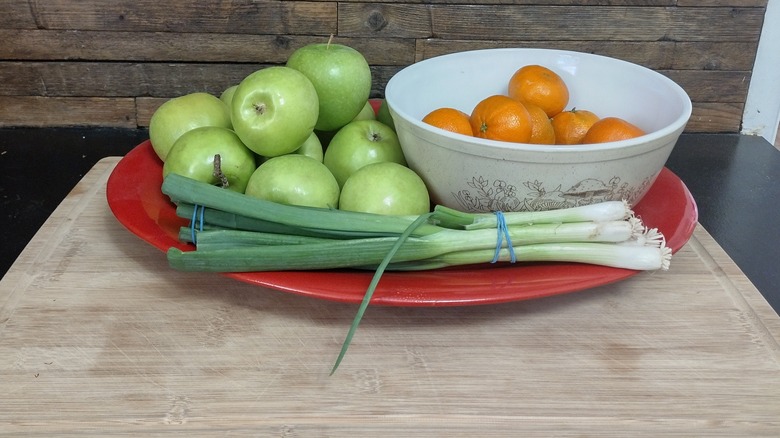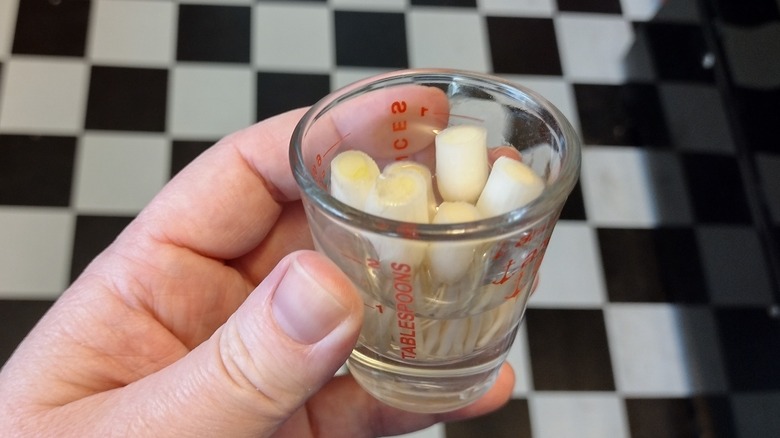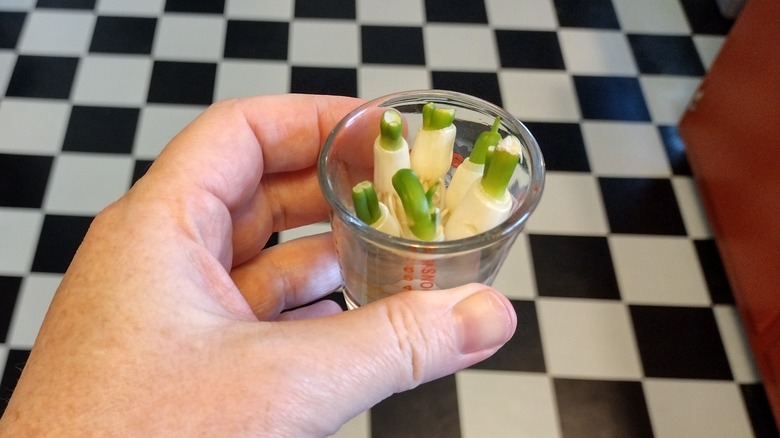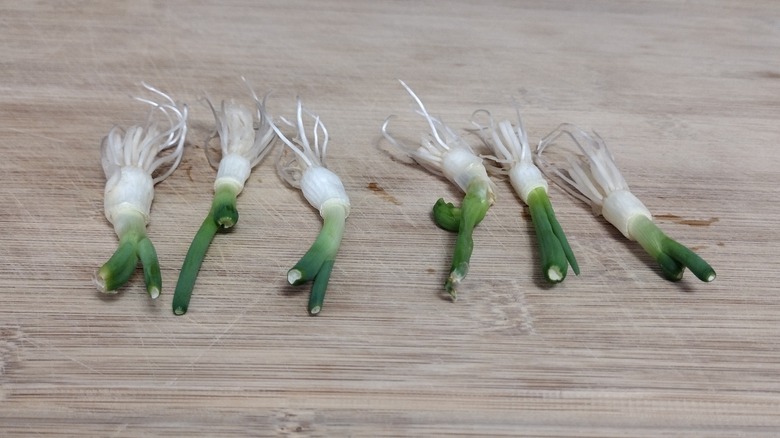We Grew Green Onions From Scraps: Here's The Dirt On This Way To Upcycle Food Waste
Growing food from scraps is an appealing concept. In theory, this process would reduce the amount of decomposing food that ends up in the landfill while saving us money. I have grown food from scraps before. When red onions sprouted in my kitchen, I decided to plant them outside and see if they would produce anything edible. They did! I got a handful of onions from what would otherwise be garbage or compost. Regrowing green onions in water seemed a little less likely, but it was certainly worth trying.
For years, I've seen articles touting the benefits of regrowing lettuce, celery, cabbage, and green onions from scraps. As long as the root section is intact, you can grow new veggies. The problem is, I don't remember ever seeing the end results. I do know that I've never seen anyone grow a full celery stalk in water in a kitchen window. In my many years as a master gardener, I've taken a lot of classes, but it doesn't take much more than common sense to know that everything needs nutrients to grow. While water is certainly necessary, it's not everything a plant needs. Still, this process was worth trying if only to satisfy my own curiosity.
Set up
I'm not entirely sure what happened, but it took me two tries to get any growth from my green onions. The first batch rotted in the water. It was slimy and stinky and I honestly thought about giving up on the experiment, but never one to give up after my first gardening failure, I tried again.
Since I just had a handful of green onions, I used a shot glass to make sure that the root section was in water but the tops could stand upright, which may be why the first batch rotted. I trimmed the tops off leaving the roots and about half an inch of the white section. I also trimmed the roots so they were all even. I thought that by cutting the roots, it might open them up to be able to absorb more water since that was the only growing medium. I placed my shot glass full of little onion scraps in my kitchen window where they would get indirect sun most of the day.
Growing green onions from roots
With my onions in the kitchen window, all I had to do was wait and refresh the water every once in a while. Every couple of days, the water would start to get cloudy and smelly. I expected that would grow bacteria and cause the roots to rot, so fresh water seemed like a good idea. Plus, I didn't want my kitchen to smell like a stinky, rotten onion. In about a week, my green onion root sections started producing new growth. Even though I started with the white root part — the section that is most often used in cooking and what I would consider the tastiest part — my scraps only grew new green tops. I do use the green part like chives in fresh meals, so this new growth was not a deal-breaker.
I kept caring for my onions for about a month. I wanted to see how this process compares to growing green onions in the garden from seed. It takes 60 days or more to grow mature green onions. After 30 days, I had considerably less than half an onion.
Results
This project was not a success, but it's not because green onions cannot be regrown from scraps. As I suspected, the lack of nutrients in water alone just is not enough to sustain growth. In a month, my tallest green onion was almost 2 inches tall. Out of the handful of onions I started with, I had enough greens to sprinkle on top of my salad. They were tasty, though. Before enjoying my tiny harvest, I noticed the greens were starting to curl and turn yellow on top. I don't think they would have lasted much longer.
For those interested in regrowing vegetables from scraps, moving them to soil is a much better option. Green onions grow best as cool-season crops, so when the last danger of frost has passed, you can plant your root scraps in the ground or a container. They don't take up much space, so green onions are a good option for patio growers. If you decide to regrow your own, just keep in mind that you'll likely end up with mostly green tops. If you enjoy using that part to accent your meals, it's not a bad way to upcycle food waste.



